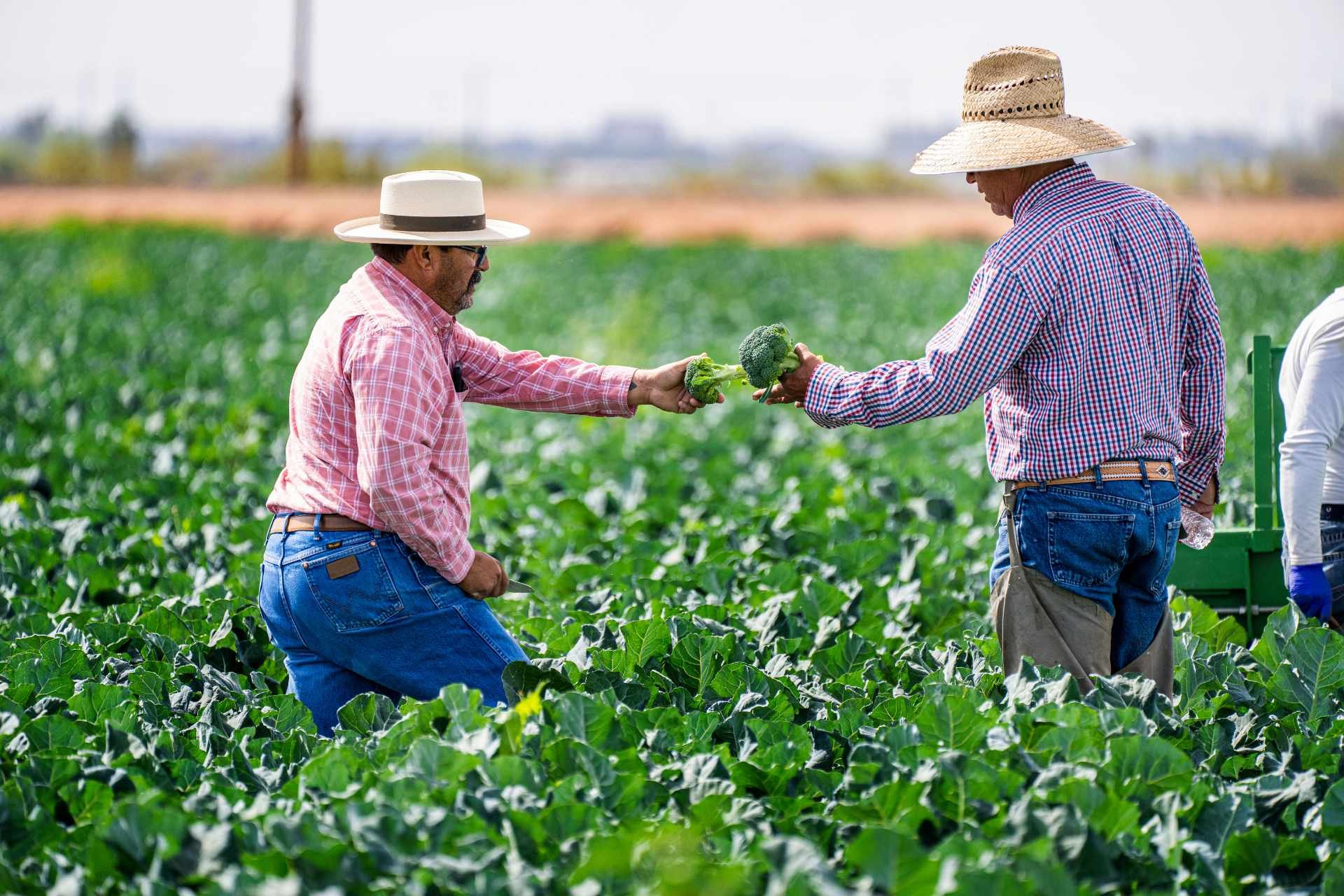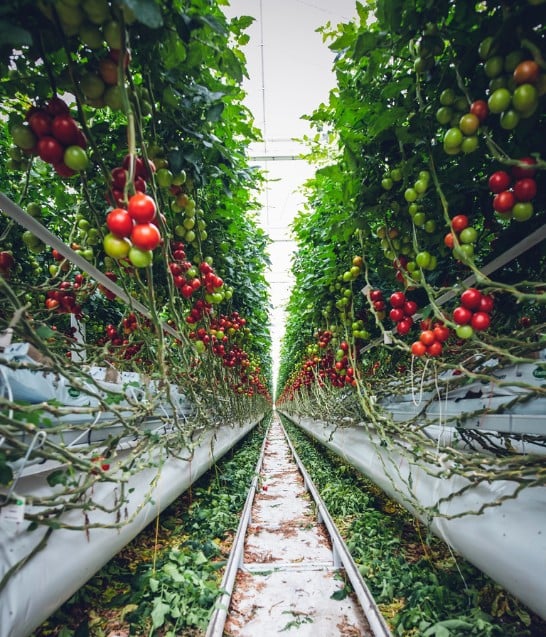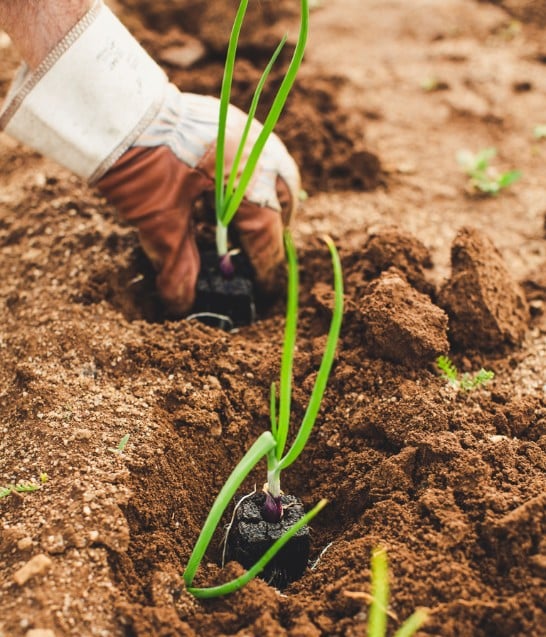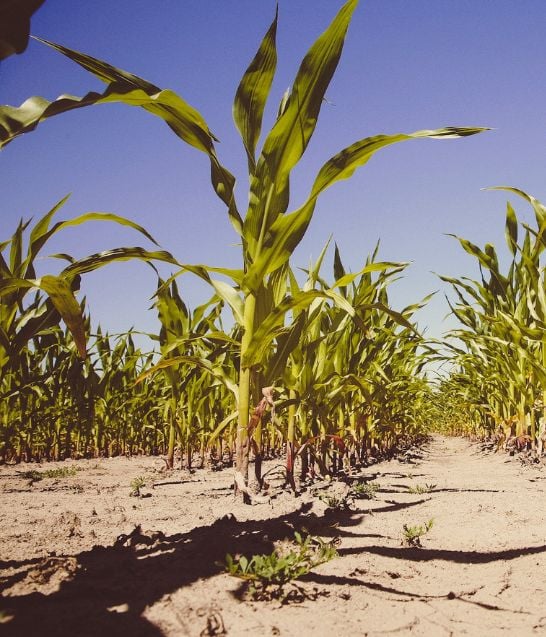
Creating innovative models for sustainable, resilient, and just food systems
Learn more about how Reos Partners' proven methodologies enable food system innovators around the world to create sustainable, just, and resilient food systems.
As the global population grows, the pressure on the world's food systems increases.
The current climate requires food systems to handle extreme weather events, environmental degradation, and economic shocks while promoting fair labour practices and meeting the needs of the present without compromising the ability of future generations to meet their own needs.
These multi-faceted challenges call for collaborative, multi-stakeholder strategies and approaches.
Reos Partners supports advances in food systems, helping our partners identify groundbreaking approaches, build successful collaborations, and drive lasting results.
Our proven methodologies help guide food system innovators to enact practical solutions and build replicable models to chart a new course for just, equitable and resilient food systems.
Examples of our food systems work
.jpg?width=546&height=637&name=Food%20systems%201%20(2).jpg)
Sustainable Food Lab: creating examples of mainstream sustainable food supply chains
Challenge: The food system relies on long-distance, impractical, wasteful supply chains centred around industrial agriculture. To feed the population of the future, we need to build a more sustainable food system by creating and demonstrating mainstream supply chains that are resilient, sustainable, and market-based.
Partnership: Launched in 2004, the Sustainable Food Lab (SFL) is a nonprofit organisation co-initiated by Reos Partners and the Sustainability Institute.
SFL brings corporations, civil society leaders, non-governmental organisations, and governments together to accelerate incorporating environmental, economic, and social sustainability into the DNA of the mainstream food and agricultural systems. It involves food system actors from Europe, North America, and Latin America.
Using the social labs approach, Reos Partners and the Sustainability Institute provided leadership, process design, and facilitation from SFL’s conception in 2002 through the end of its first phase in 2007.
Transformation: Today, SFL offers a variety of forward-thinking initiatives that help organisations create more sustainable food systems. It provides professional development opportunities, measurement tools, and pre-competitive collaborations.
By fostering unlikely partnerships with businesses and farming systems, SFL effectively helps implement large-scale sustainability innovations in mainstream food systems.

The Bypass Project: reimagining a local food supply chain for underserved communities in the US
Challenge: Across the US, people in underserved communities often lack reliable, affordable access to fresh, locally grown foods. At the same time, local growers are distanced from the people who benefit from the food they produce.
Partnership: In 2021, Reos Partners supported Red Tomato, a nonprofit food hub in the Northeast US, to build a reimagined supply chain that distributes food directly from local growers to underserved communities. The organisation established a farm-to-consumer direct supply chain that ensures food security and resiliency in two of Connecticut’s most significant food deserts. By bypassing retailers, Red Tomato brings fresh, affordable local food to people in need while providing a fair income to farmers.
Transformation: In the first year of the program, known as the Bypass Project, Red Tomato delivered more than $25,000 of fresh, locally grown food from over 20 farms to underserved communities. Red Tomato Executive Director Angel Mendez says the project has received praise from communities and growers alike. Red Tomato aims to develop a baseline supply chain model that can be applied in other parts of the region and eventually across the country, solidifying a new direct market for local growers.

Southern Africa Food Lab: enhancing food security by transforming agriculture
Challenge: The people of Southern Africa face severe hunger for interrelated reasons, including environmental, health, economic, socio-political, and agro-food issues. The founders of the Southern Africa Food Lab (SAFL) felt frustrated with the fragmented way in which complex issues of food insecurity were being tackled and wanted to foster more creative responses to hunger in the region.
Partnership: Launched in 2009, the SAFL is an action-oriented social lab that aims to enhance food security and promote creative responses to address the hunger crises in Southern Africa using multi-stakeholder dialogue and action. Under the guidance of Reos Partners, SAFL brings together diverse stakeholders to respond to systemic issues and inspire change.
Transformation: By creating a platform for communication and innovation, the SAFL has driven collaboration, awareness, and meaningful action. The lab uses collaborative learning and facilitation approaches to develop a shared understanding of food security issues and ideate solutions to create a more just and sustainable system. SAFL notably received international recognition in 2018 by the UN’s 10-year framework of programmes on sustainable consumption and production patterns within their Sustainable Food Systems Program.

Urban Laboratory of Food Policies: a collaborative platform to transform Brazil’s food systems
Challenge: In Brazil, more than 50% of the population experiences some degree of food insecurity. Given Brazil’s dense urban areas, cities need support to build healthy, resilient, equitable, and sustainable food systems that benefit people and the planet.
Partnership: To improve access to affordable healthy food, the Urban Laboratory for Food Public Policies in Brazil, known as LUPPA, aims to support small and medium-sized cities to develop food policies, enabling them to achieve healthy food systems for their inhabitants. LUPPA offers a collaborative platform to facilitate the construction of integrated, participatory municipal food policies with a systemic approach, inviting municipal governments and other actors in urban food systems to collaborate and share knowledge.
Transformation: Reos Partners facilitated LUPPA’s first phase in 2021, which convened stakeholders representing local governments and local food councils from more than 20 Brazilian cities. Participants worked together to develop action plans to transform their local food system.
Ten cities were selected to be mentored and receive support to develop their action plans. The initial phase of LUPPA demonstrated the need for collaboration. LUPPA proved cities can contribute to greater systemic change by working together and exchanging learnings and ideas.
